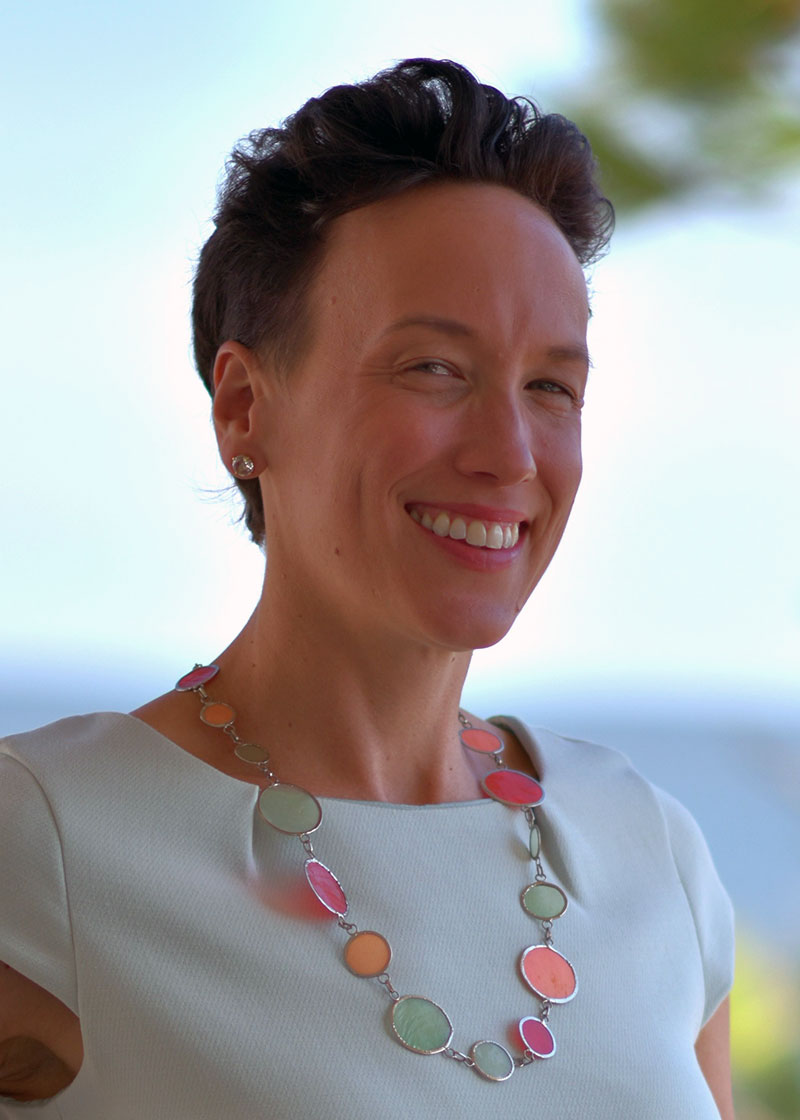Assistant Professor, Distance-Accessible Astronomy Education Project
ESH 4142
(205) 975-2277
Research and Teaching Interests: Astronomy History in the Southeast, Sustainability Education, Critical Qualitative Research Methodologies in Education, Supporting Experiences of PEERs (Persons Excluded Because of their Ethnicity or Race) in Science Teaching & Learning
Office Hours: By appointment
Education:
- B.A., University of California Santa Cruz, Pure Mathematics
- M.S., San Francisco State University, Physics
- Ph.D., University of Alabama, Educational Research Methodologies
I remember that one night fondly, when I looked up at the night sky and felt awe. I was 13 and had a growing sense that I wanted the stars to become an intimate part of my life’s endeavors. Thankfully, the local amateur astronomy club welcomed me with open arms. Even though our Southern California skies were bright orange due to light pollution, soon I was helping people of all ages look through telescopes at objects like Saturn and the Moon. My high school physics teacher helped me start an astronomy club. In these places and spaces, I was typically one of few women. Over time I became (and still am) critically reflective of my interests in astronomy and my responsibility in shaping its future.
I came to UAB as an assistant professor of astronomy education in 2021, after teaching astronomy for over ten years in New Zealand, California, Washington D.C., Alaska, Pennsylvania, and Colorado. At UAB, I oversee curriculum development of the astronomy program. Each semester I teach upwards of three lectures and three labs with hundreds of students enrolled – mostly nonscience majors. Sharing astronomical discoveries with them, and helping them see their potential in science, are among my greatest life passions.
I have three major goals in my teaching:
- To create experiences that help us explore and build a relationship with the night sky that can inspire wonder for many years to come. Art, story-telling, writing, documenting, and observing all play a role in these experiences.
- To create an inclusive environment that values the diversity of learners that come to my classes. I publicly acknowledge and support students in contending with exclusions that have persisted in science and astronomy since their beginnings.
- To unravel the incredible advancement of our understanding of the space environment due to sophistication of technology and scientific process. Further, to convey the increasingly dramatic limitations to astronomical discovery due to light pollution, radio interference, and satellite constellations.
Beyond teaching, my scholarship is focused on the protection of the night sky. Such scholarship is important to me because of the affordance of night sky toward humanity’s continued humility, wonder, inspiration, and sense of connectedness. Since the time of my hire at UAB I have collaborated with others across the Southeast, United States, and the globe, to broadly create awareness and action toward the mitigation of light pollution and satellite constellations. I initiated and currently lead the Southeastern United States regional chapter of DarkSky International called Starry Skies South. I also serve on Dark Sky International’s Technical Committee.
Outside of these activities, I am thrilled to serve as faculty adviser for the Astronomy Club at UAB, planetarium presenter and UAB student-show coordinator with the Samford University Christenberry Planetarium, faculty affiliate of the UAB Institute for Human Rights, and volunteer with Alabama Audubon’s Project Safe Flight. I enjoy long walks and camping across Alabama with my amazing friend network, learning gymnastics with my spouse (my goal is a back-walkover; I’m almost there!), and reading life-changing literature with my mom.
-
Dark Sky Studies
Preserving the view of a star-filled night sky is important for stargazing and human and environmental health. UAB is among the first institutions in the world to offer formal studies of dark sky preservation.
Coursework
Beginning in Fall 2024, an introductory course in dark sky studies will be offered, Astronomy 121: Protecting Starry Skies in Birmingham and Beyond (face-to-face). This course has no pre-requisites and is a service-learning course that satisfies the Blazer Core City as Classroom requirement.Campus SHINE Lab
UAB Facilities, in partnership with the Department of Physics, is committed to helping the university become dark sky compliant. Dr. Michelle Wooten leads the effort to help UAB adopt Safe and Healthy Illumination for the Nighttime Environment (SHINE), through her lab called the Campus SHINE Lab. This lab involves both high school and UAB undergraduates in analyzing campus lighting and recommending changes. Current projects include analysis of GIS mapping of lighting statistics, nighttime drone measurements of sky quality, UAB police crime data analysis, and partnership with Alabama Audubon’s Project Safe Flight to monitor bird window collisions precipitated by nighttime lighting. -
Recent Courses
- Astronomy of the Universe (AST 101)
- Astronomy of the Solar System (AST 103)
- Astronomy of Stellar Systems (AST 102)
-
Select Publications
- Wooten, M. M., & Ryker, K. (in press). Perturbing current boundary conditions in discipline-based and science education research in the Anthropocene: Implications for research and teaching communities. In J. Bazzul, M. Wallace, M. Higgins, & S. Tolbert (Eds.), Re-imagining science education in the Anthropocene. Palgrave MacMillan.
- Wooten, M. M. & Corlew, J. (in press, 2021). Engaging Nashville’s youth in farming, food choice, and food access issues: Two programs by a Nashville nonprofit. In A. Patchen, L. Esters, & I. Decoito (Eds.), Designing urban agriculture programs to improve STEM learning and teaching. Springer.
- Wooten, M. M., Coble, K., Puckett, A. W., & Rector, T. A. (2018). Investigating introductory astronomy students’ perceived impacts from participation in course-based undergraduate research experiences. Physical Review Physics Education Research, 14(1), 010151, 1– 21. doi.org/10.1103/PhysRevPhysEducRes.14.010151
